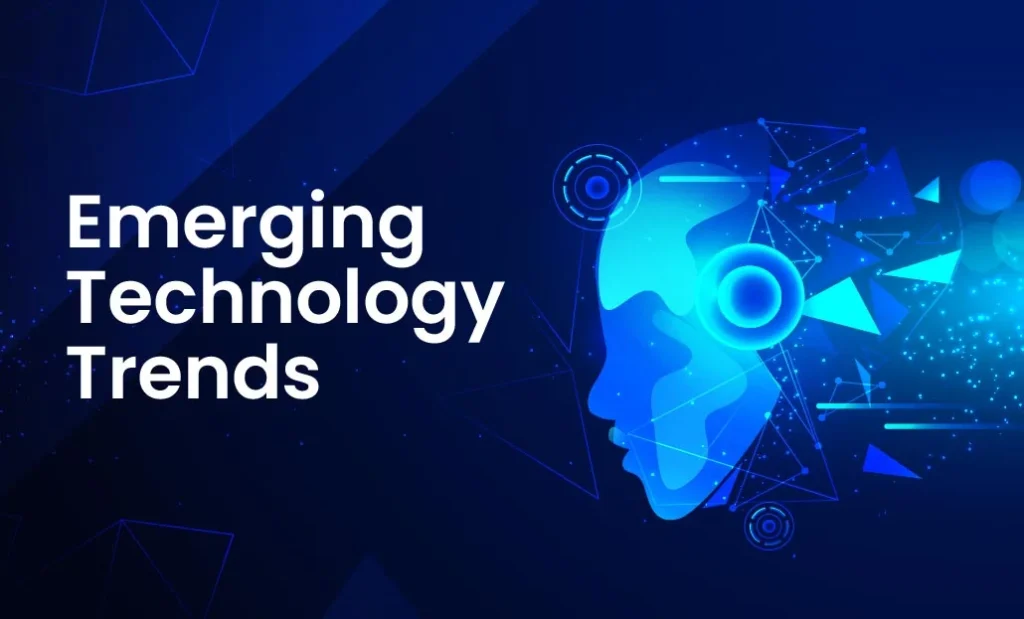In our rapidly evolving world, technology continues to reshape the way we live, work, and interact. With the pace of innovation accelerating, it’s crucial to stay informed about emerging tech trends that promise to transform industries and everyday life. In this blog, we will explore some of the most impactful emerging technologies, their implications, and how they might shape the future.
1. Artificial Intelligence (AI) and Machine Learning
Artificial intelligence has moved beyond the realm of science fiction into practical applications that are transforming industries. AI and machine learning algorithms are now capable of processing vast amounts of data, identifying patterns, and making predictions with remarkable accuracy.
Applications:
- Healthcare: AI is revolutionizing diagnostics, from detecting diseases in medical images to personalizing treatment plans based on genetic information.
- Finance: Algorithms are enhancing fraud detection and automating trading processes, allowing for faster and more accurate decision-making.
- Customer Service: Chatbots and virtual assistants powered by AI are improving customer experiences by providing instant support and personalized recommendations.
As AI continues to evolve, ethical considerations will become increasingly important. Ensuring transparency in AI decision-making and addressing concerns about bias will be essential for building trust in these technologies.
2. 5G Technology
The rollout of 5G networks is set to revolutionize connectivity. With higher speeds, lower latency, and the ability to connect more devices simultaneously, 5G is poised to enhance everything from smartphone usage to the Internet of Things (IoT).
Impacts:
- Smart Cities: 5G will facilitate the development of smart city infrastructure, enabling real-time data collection for traffic management, energy efficiency, and public safety.
- Autonomous Vehicles: With faster communication between vehicles and infrastructure, the deployment of self-driving cars becomes more feasible, leading to safer and more efficient transportation.
- Remote Work and Collaboration: The increased bandwidth will improve video conferencing and collaboration tools, making remote work more seamless and productive.
As 5G technology matures, it will be critical to address security concerns and ensure equitable access to prevent a digital divide.
3. Blockchain Technology
Blockchain, best known for powering cryptocurrencies like Bitcoin, has far-reaching implications beyond finance. Its decentralized nature offers enhanced security, transparency, and traceability.
Applications:
- Supply Chain Management: Blockchain can track products from origin to consumer, ensuring authenticity and reducing fraud.
- Healthcare: Patient records can be securely stored and shared among providers, enhancing data interoperability and patient care.
- Voting Systems: Blockchain can be utilized to create secure and tamper-proof voting systems, increasing trust in democratic processes.
Despite its potential, widespread adoption of blockchain faces challenges, including regulatory hurdles and scalability issues. However, as solutions emerge, blockchain could fundamentally change how we transact and interact.
4. Augmented Reality (AR) and Virtual Reality (VR)
AR and VR technologies are transforming how we experience the digital world. While VR immerses users in a completely virtual environment, AR overlays digital information onto the real world, enhancing our interaction with our surroundings.
Applications:
- Education and Training: VR can simulate real-life scenarios for training purposes, from medical procedures to flight simulations, providing safe and effective learning experiences.
- Retail: AR applications allow customers to visualize products in their own spaces before making a purchase, enhancing the shopping experience.
- Gaming: Both AR and VR are revolutionizing gaming, offering immersive experiences that engage players in unprecedented ways.
As hardware becomes more affordable and content more accessible, AR and VR will likely become integral parts of our everyday lives.
5. Quantum Computing
Quantum computing is poised to revolutionize industries by solving complex problems that classical computers cannot tackle efficiently. By leveraging the principles of quantum mechanics, these machines can process information in fundamentally new ways.
Impacts:
- Pharmaceuticals: Quantum computing can accelerate drug discovery by simulating molecular interactions at an unprecedented scale.
- Cryptography: While it poses challenges to current encryption methods, quantum computing also offers the potential for developing new, more secure cryptographic techniques.
- Climate Modelling: By analysing vast datasets, quantum computers can improve predictions and simulations related to climate change, enabling better decision-making.
While still in its infancy, quantum computing holds immense potential that could redefine our technological landscape in the coming years.
6. The Internet of Things (IoT)
The IoT refers to the network of interconnected devices that communicate and share data. As sensors become more affordable and pervasive, the number of IoT devices is expected to grow exponentially.
Applications:
- Smart Homes: IoT devices enable homeowners to control lighting, heating, and security systems remotely, enhancing convenience and energy efficiency.
- Industrial IoT: Factories are using IoT sensors to monitor equipment performance, predict maintenance needs, and optimize production processes.
- Healthcare Monitoring: Wearable devices can track health metrics in real-time, providing valuable data for both individuals and healthcare providers.
As IoT continues to expand, ensuring security and data privacy will be paramount to prevent breaches and misuse of personal information.
Conclusion
The emerging tech trends outlined above are just a glimpse into the future. As these technologies develop, they will reshape industries, enhance our daily lives, and challenge us to adapt. Staying informed about these trends is crucial, not just for businesses looking to innovate but also for individuals navigating an increasingly digital world. Embracing these changes with a critical eye will ensure that we harness the benefits while addressing the ethical and social implications that arise. The future is here, and it promises to be both exciting and transformative.

